
1. The Integrated Sustainable Design (ISD) Lab: Pioneering a Systems-Based Approach to Architecture and Urbanism
The ISD Lab extends from the MSc ISD programme at the National University of Singapore. The goal is to unpack resilience and regeneration through studio-based research into (a) actions linking the building and the urban scales (b) blended knowledge from multiple disciplines such as architecture, engineering, landscape design, planning, urban design and biological science. Experiments in the synthesis of scale and knowledge are carried out through a unique ‘systems-based’ approach, which seeks new forms and rules for the 21st century city. Our work has led to publications on Asian cities, plus engagement of policy-maker and planners in Singapore. (https://cde.nus.edu.sg/arch/programmes/master-of-science-integrated-sustainable-design/)Find out more here.
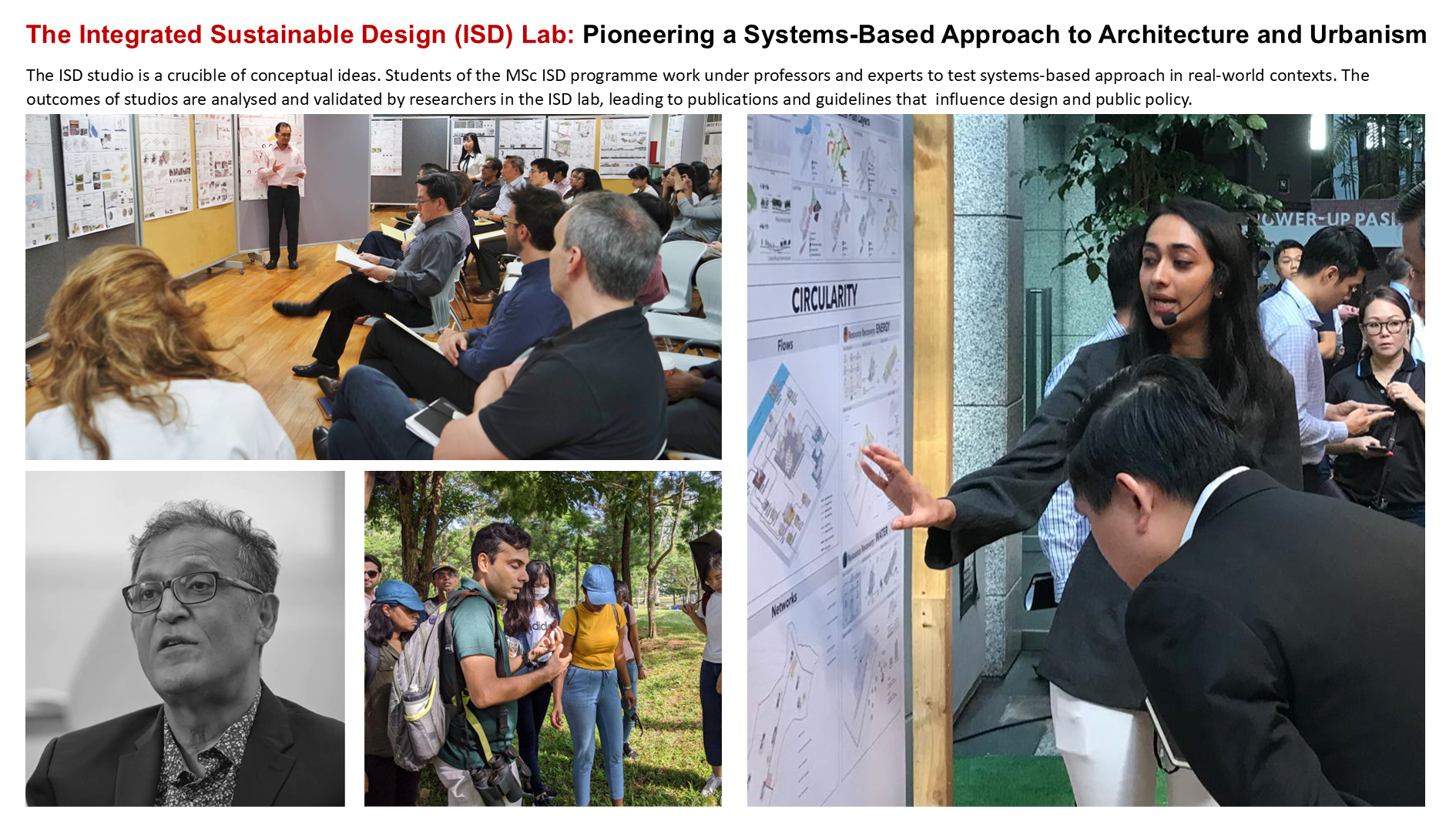
A glance of ISD Lab at Work.
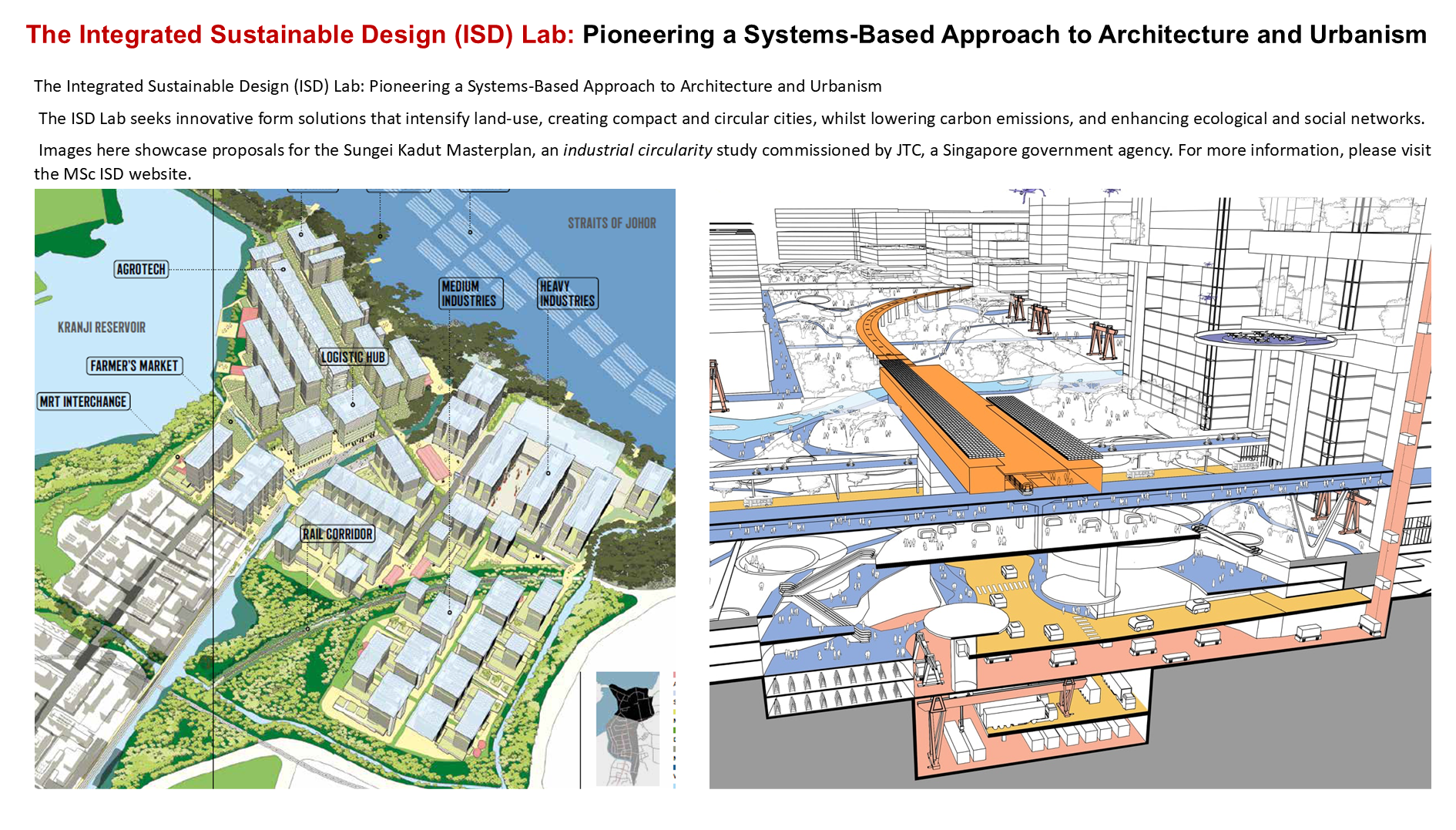
Preview of ISD Lab’s past works. Visit the Programme’s website for more information.
2. Climate Action: Density Patterns That Balance Carbon Emissions v. Population Growth
Singapore’s North-South Corridor is an ongoing urban enhancement project that partly sinks, partly elevates a 21 km arterial road. The ISD Lab tested four design actions: (a) phased retrofit/redevelopment of parcels (b) densification of neighbourhoods (c) onsite capture of energy and water, and (d) new ‘fingers’ of public space, green cover, and urban farming. Tying these actions to targets for density and emissions, the studio uncovered new architectural and urban typologies. The research offers perspectives on urban form, showing that the Corridor can offset Singapore’s net carbon emissions by 117,000 tonnes/year, while accommodating population growth of half a million.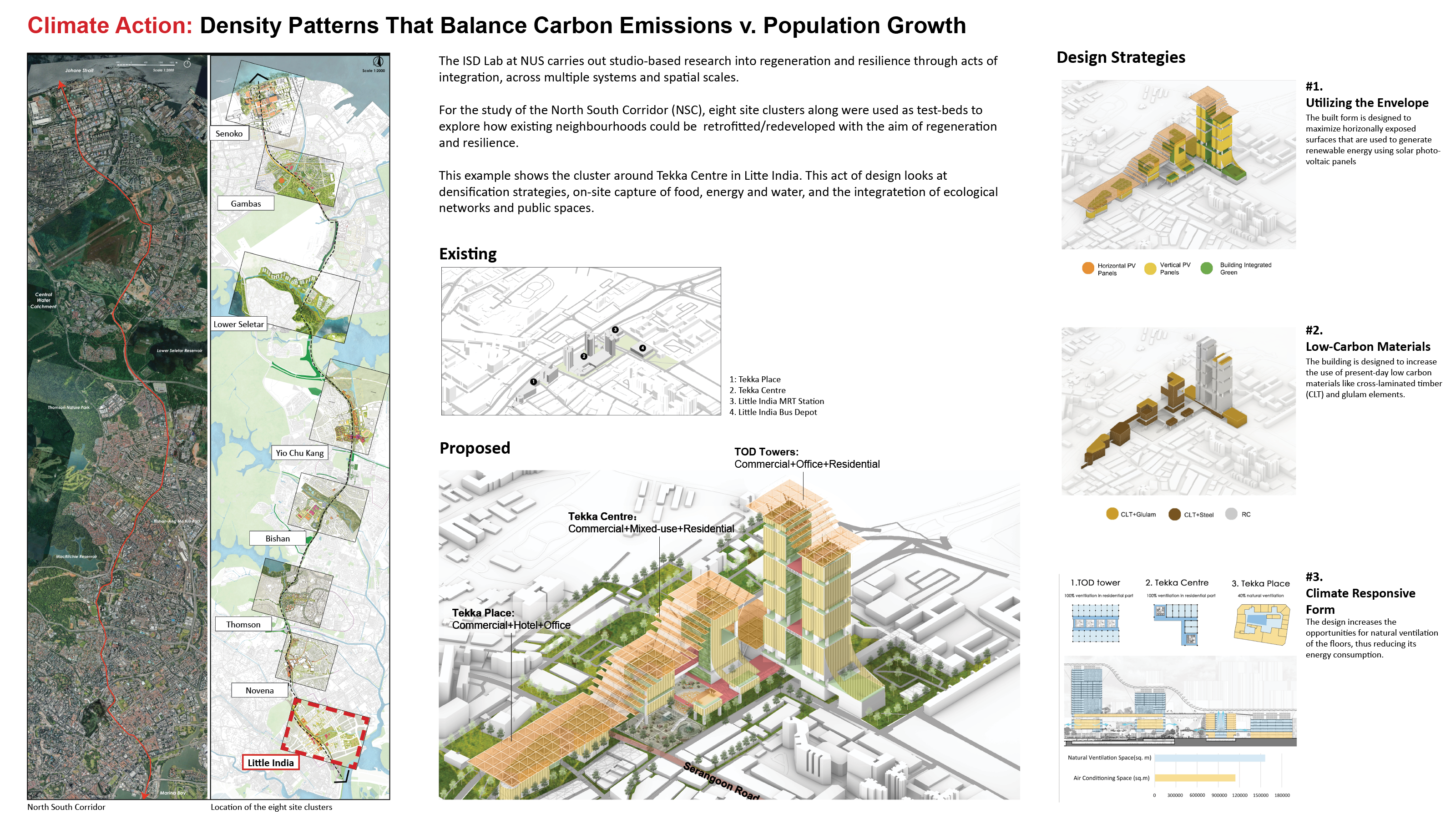
Reimagined development clusters along the North-South Corridor.
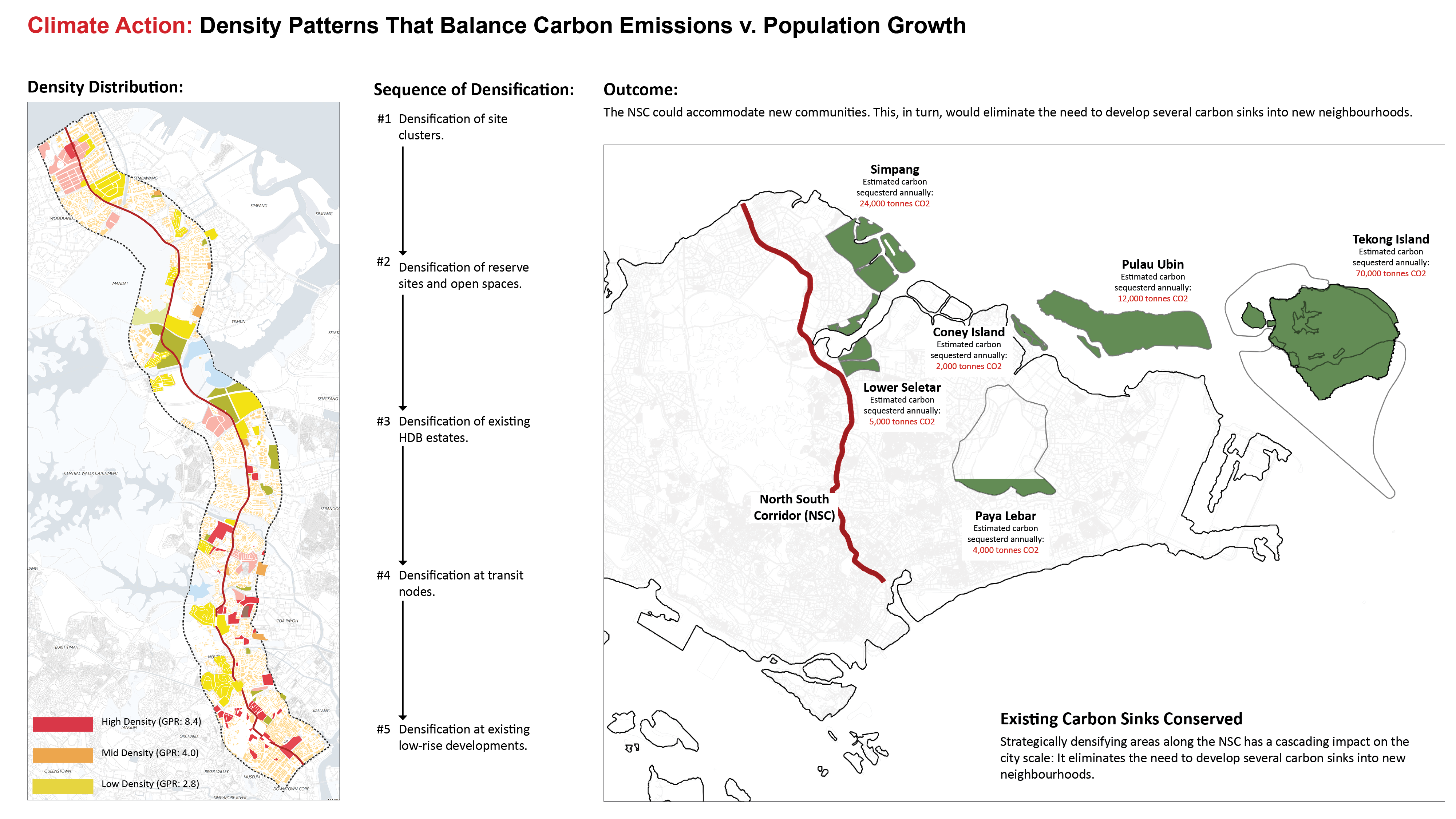
Balancing carbon emissions versus densification
3. Resilience: Coastal Defense Infrastructure That Becomes New Urban and Ecological Assets
Singapore’s East Coast is vulnerable to sea level rise. The ISD Lab offered a counter proposal to an initial government proposal. Instead of large-scale land reclamation, the Lab proposed a string of five islands, one km from the shoreline, linked by an engineered ‘barrier’ wall. A new retention basin is created that serves as a freshwater reservoir and mitigates risk of inland flooding. The wall doubles as a highspeed mobility corridor, diverting traffic away from existing residential areas. The multi-island approach permits phasing; land is reclaimed only when there is demand and capital.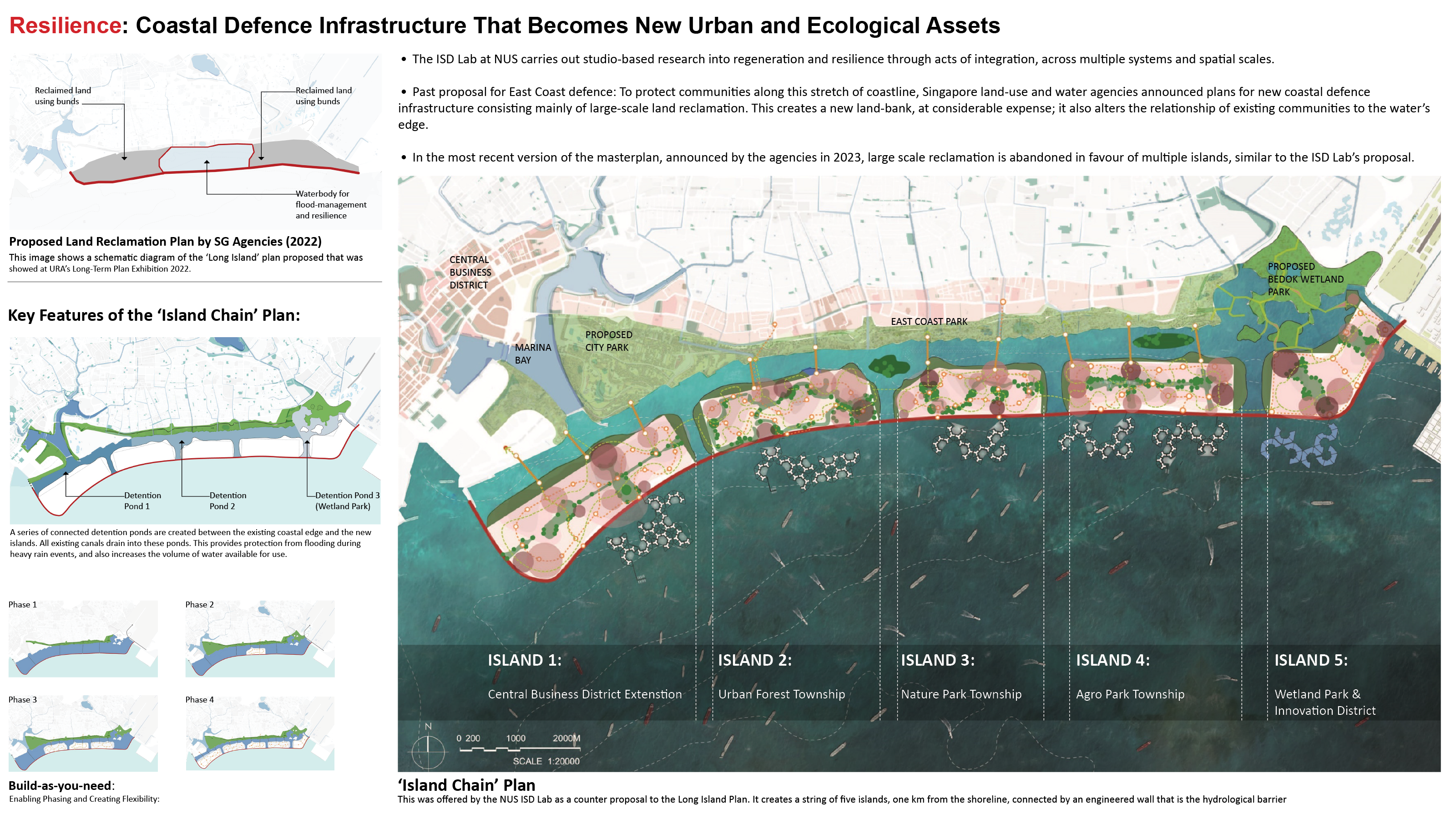
ISD Lab’s Proposal for coastal defense – The Island Chain Concept
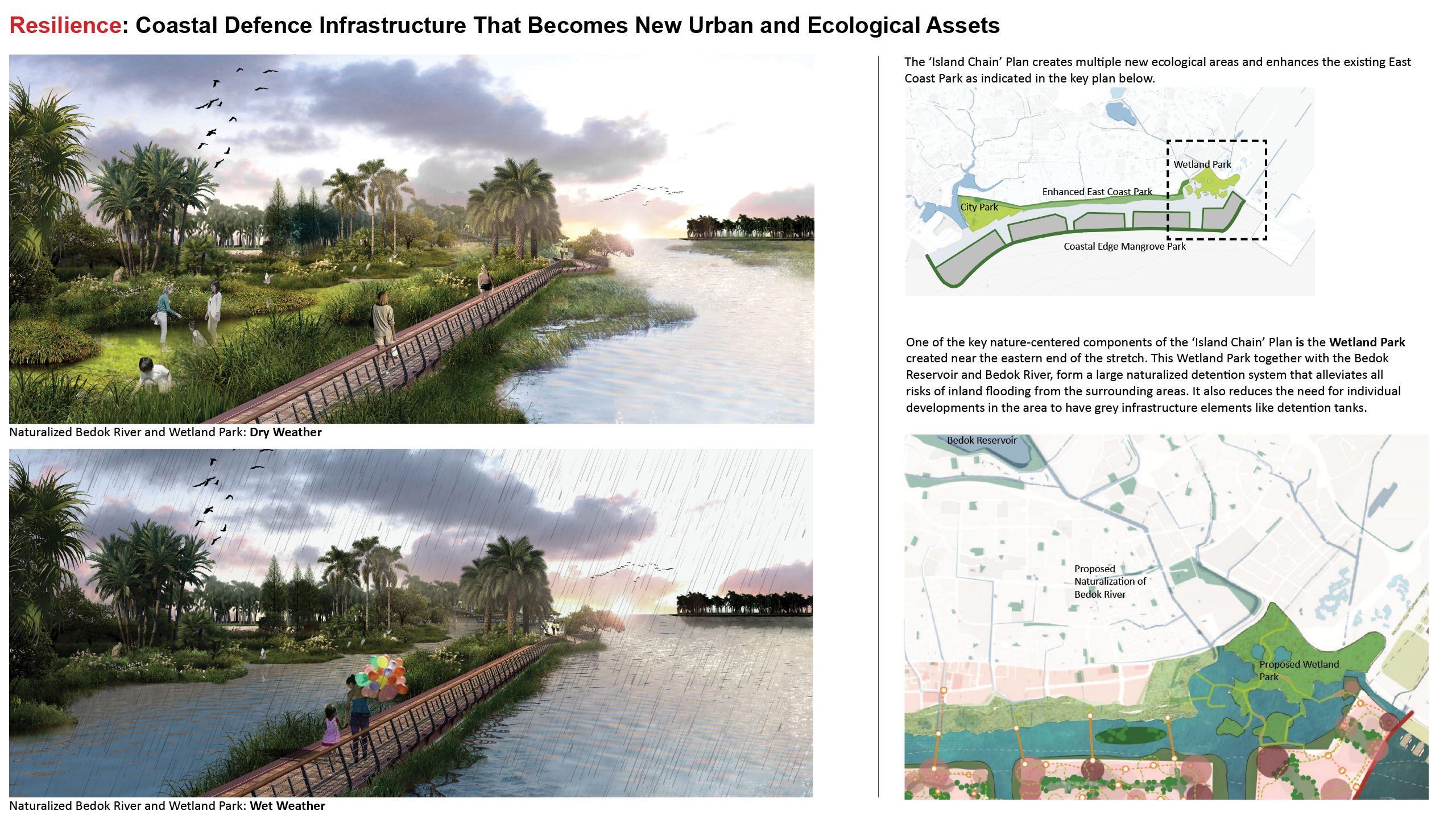
The Island Chain Concept creates new urban and ecological assets